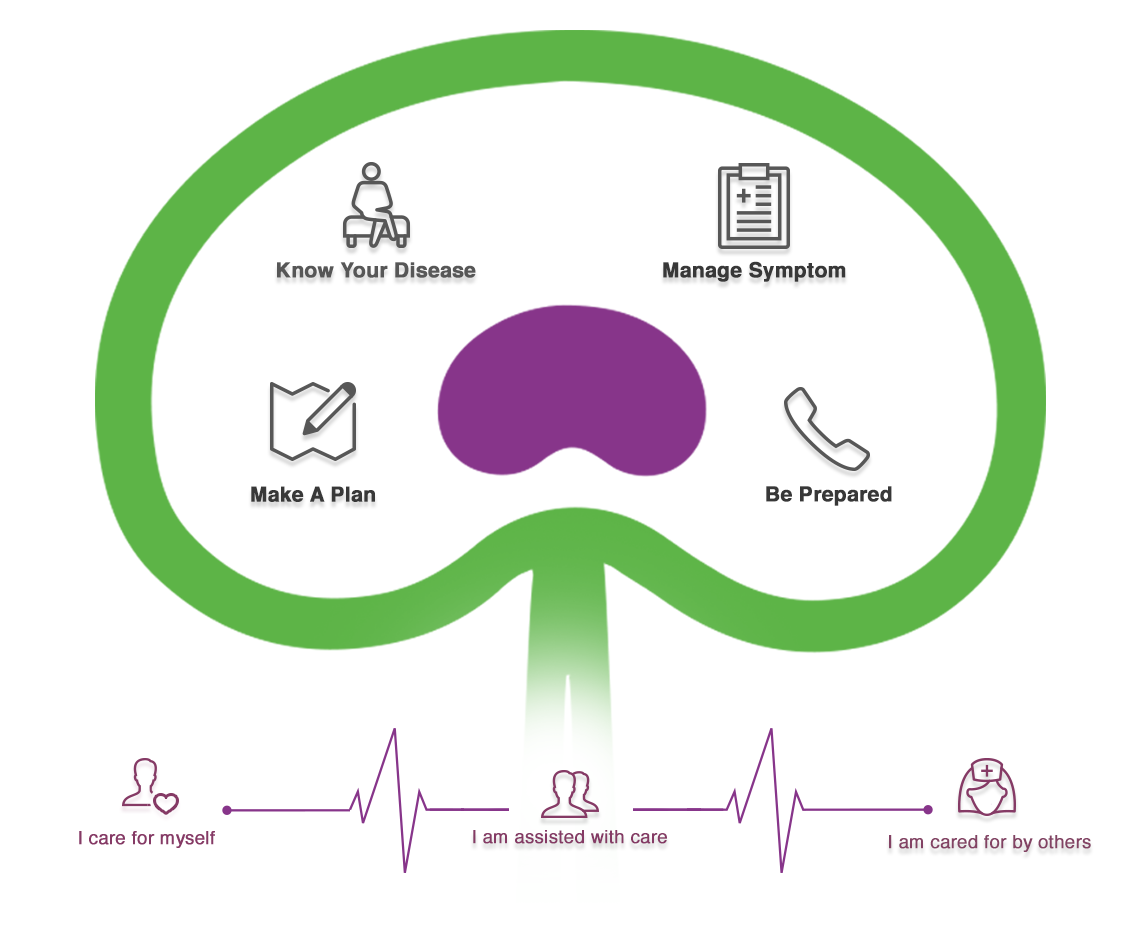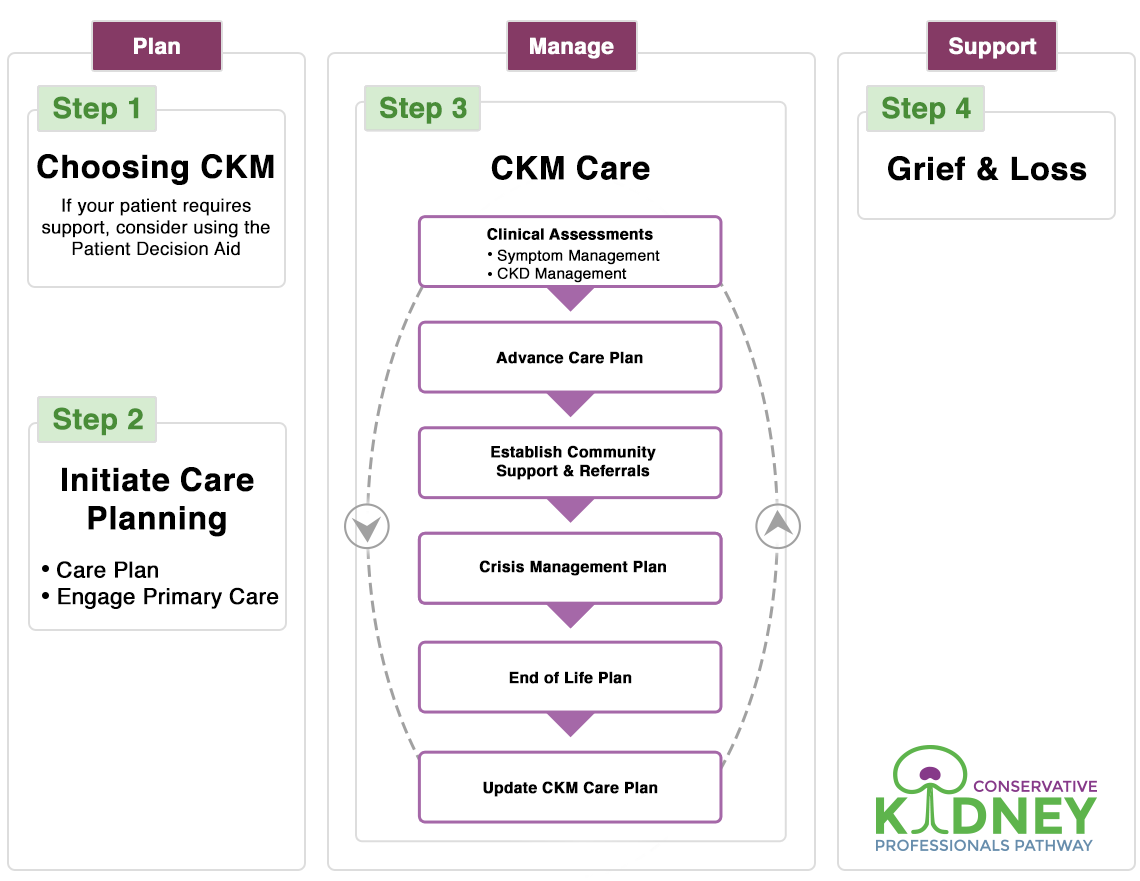Preparing for the End of Life - Patient Handout (Web version)
Kidney disease is considered a life-limiting disease. You may have questions about what you can expect as your kidney function gets worse and as you approach the end of life.
Many factors affect how long you’ll live. Depending on how fast your kidney function decreases, you may have weeks, months, or years to live. Some factors that affect how long you’ll live include:
- your kidney function / glomerular filtration rate (GFR)
- other health problems (eg: diabetes, heart disease)
- your lifestyle (eg: weight, exercise, diet, blood pressure)
- your overall health (physical and mental health)
In the last days to weeks of life, you might have some common symptoms like nausea or vomiting, itchiness, restless legs, trouble sleeping, pain, and trouble breathing. Your healthcare team will help you manage your symptoms.
When your kidney function gets very poor, you might start to have other symptoms that may be more challenging to manage like loss of appetite, muscle twitching, feeling drowsy, feeling tired, and confusion. You might spend most of your time resting and you might need a lot of help from your family and friends.
The Last Days of LifeIn the last days of life, you may sleep longer, have less energy, or eat and drink less (or maybe nothing at all). Your family and friends might notice that you’re less aware. You might be a bit confused and restless at times. This is all expected. Healthcare professionals are available to support and help families understand what is happening.
If you and your family think you need more help than what you can get at home, your healthcare providers will help you make another plan. This might mean going to a place that provides palliative care, like a hospice in your community if possible. If a hospice isn’t an option, you might need to go to a hospital for palliative care.
What should my family and friends know?In the last days of life, people may:
- be confused
- be restless
- have trouble breathing or breathe differently
- have an irregular heartbeat
- have changes with how the bowels and bladder work
- have skin changes
- have muscle twitching
These changes are all an expected part of dying. Just being with the person who is dying is the best way to offer comfort and support.
- stop breathing
- don't have a pulse
- don't respond when you touch them or talk to them
If you think the person has died:
- DO NOT CALL 911 to notify the ambulance or police
In Alberta, when expected deaths of palliative care clients occur at home as a natural result of their illness, it is not necessary to involve the ambulance or police. Call people for support if needed. This might be your homecare team.
Call your physician or nurse practitioner if needed/wanted
You may want to talk to your physician or NP ahead of time about whether he or she wishes to be called or come to the home at the time of death. If your physician or NP has indicated he or she would like to be notified at the time of death, call him or her at the number provided.Call the Funeral Home
You may want the body to remain in the home for a little while. Let the funeral home know when you want them to come. Funeral Home staff is available 24 hours a day. When death at home is planned, we advise clients and families to select and contact a Funeral Home in advance of the death.In Alberta, a health care professional is not required to come to the home following an expected death. The funeral director will call the physician to have him or her sign the Certificate of Death.



